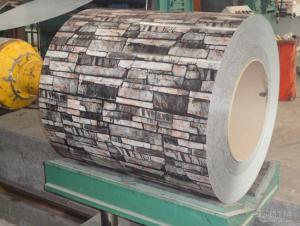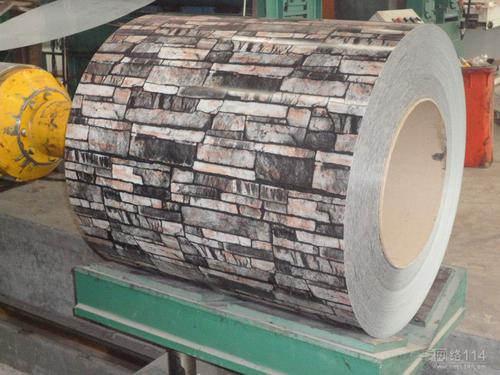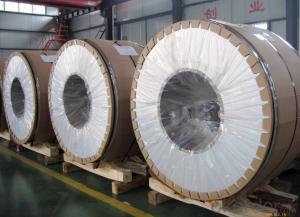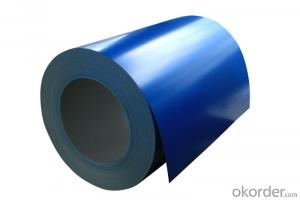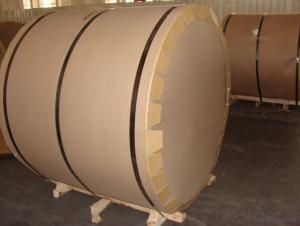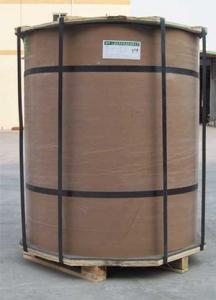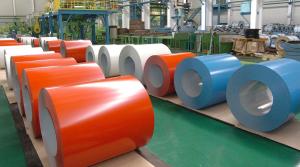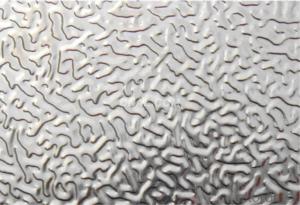Stucco Embossed 5xxx Series Coated Aluminum Coil
- Loading Port:
- China Main Port
- Payment Terms:
- TT OR LC
- Min Order Qty:
- -
- Supply Capability:
- -
OKorder Service Pledge
OKorder Financial Service
You Might Also Like
Product Description:
1 Specifications of PE Coated Aluminum Coil/Sheet
Alloy | AA1050,AA1060, AA1070, AA1100, AA3003, AA3004, AA3005, AA3105, AA5005, AA5052, AA5754, AA5083, AA8011 |
Temper: | H12, H14, H16, H18, H22, H24, H26, H32,HO, F |
Thickness: | 0.10-4.0mm |
Width: | 10mm- 2000mm |
Coating | PE(Polyester) |
Painting Thickness | Standard 16-25 microns, max 40 microns |
Color | Acording to Ral colors or customer’s samples |
Standard: | GB/T17748-1999, ASTM, ISO, EU standard |
Special Specification is available on customer’s requirement | |
Paint Material:PPGI,BECKER, NIPPON.
PE(polyester) Coating
PVDF
2 Usage/Applications of PE Coated Aluminum Coil/Sheet
Our company's PE Coated Aluminum Coil/Sheet have been widely used in the fields of construction and decoration(garage doors, ceiling etc.), electronic appliances, lighting decoration, air-condition air pipe, sanwich panels and drainage, etc.
- Q: Is it possible to recycle aluminum coils in various countries around the world?
- <p>Yes, aluminum coils can be recycled in many countries around the world. Recycling aluminum is a global practice due to its high value and the energy savings associated with recycling compared to producing aluminum from raw materials. Different countries have their own recycling programs and facilities that handle aluminum waste, including coils. However, the specific regulations and processes for recycling aluminum coils can vary by country, and it's important to check local recycling guidelines to ensure proper disposal and recycling.</p>
- Q: I want to paint my cars rims and grill metallic pink. But supposedly paint doesn't stick well to aluminum. What can I do to make it stick better and not chip?
- make sure the aluminum is ruffed up with at least 800 grit sand paper after that clean well and make sure is is dry after you clean after that use a product called adhesion promoter it will help the paint stick to the wheel hope this helps
- Q: Is it possible to use a soldering iron to solder a copper coil in place of an aluminum coil?
- <p>Yes, you can use a soldering iron to solder a copper coil instead of an aluminum coil. Copper has a higher melting point than aluminum, so you may need to use a soldering iron with a higher temperature setting or a higher melting point solder. Ensure that the solder you use is compatible with copper, as some solders are specifically designed for aluminum. When soldering copper, it's also important to clean the surface thoroughly to remove any oxidation, as this can affect the solder joint's quality.</p>
- Q: Can aluminum coils be used in agricultural applications?
- Yes, aluminum coils can be used in agricultural applications. Aluminum is a versatile and durable material that can withstand various environmental conditions, making it suitable for agricultural equipment such as irrigation systems, greenhouse structures, and ventilation systems. Additionally, aluminum's light weight and corrosion-resistant properties make it an ideal choice for agricultural applications where durability and long-term performance are essential.
- Q: This question asks about the common applications of aluminum coil in everyday life.
- <p>Aluminum coil is widely used in daily life due to its lightweight, corrosion resistance, and thermal conductivity. It's commonly used in construction for roofing and siding, in the automotive industry for car parts, and in the packaging industry for food and beverage cans. It's also used in electrical applications like transformers and wiring due to its good conductivity. In the kitchen, aluminum foil is used for cooking and food storage, and in the HVAC industry for heat exchangers and ductwork. Its versatility makes aluminum coil an essential material in many industries and everyday applications.</p>
- Q: What specific conditions or considerations need to be taken into account when utilizing aluminum coils in high-temperature settings?
- <p>When using aluminum coils in high-temperature environments, it's crucial to consider the material's melting point, which is around 660掳C (1220掳F). Ensure that the operating temperature does not exceed this threshold to avoid deformation or failure. Additionally, aluminum's strength and conductivity can be affected by high temperatures, so it's important to account for potential changes in performance. Protective coatings or treatments may be necessary to prevent oxidation and maintain the coil's integrity. Always consult material specifications and consult with material science experts to determine the suitability of aluminum coils for specific high-temperature applications.</p>
- Q: Can aluminum coils be used in high-altitude environments?
- Yes, aluminum coils can be used in high-altitude environments. Aluminum is a lightweight and corrosion-resistant material, making it suitable for various applications, including in high-altitude environments. Aluminum coils are commonly used in air conditioning systems, heat exchangers, and refrigeration units, which can function efficiently at high altitudes. Aluminum's high strength-to-weight ratio allows it to withstand the extreme conditions found at high altitudes, including low temperatures, high winds, and low atmospheric pressure. Additionally, aluminum is non-magnetic, which is advantageous in certain high-altitude applications, such as aerospace and satellite technologies. Furthermore, aluminum has excellent thermal conductivity, allowing it to efficiently transfer heat, making it ideal for use in cooling systems operating in high-altitude environments. Its corrosion resistance properties also make it durable and able to withstand the effects of moisture, which can be prevalent in such environments. Overall, aluminum coils are a reliable and suitable choice for use in high-altitude environments due to their lightweight, corrosion resistance, thermal conductivity, and strength.
- Q: How are aluminum coils used in the production of food processing equipment?
- Aluminum coils are commonly used in the production of food processing equipment due to their excellent thermal conductivity, corrosion resistance, and lightweight nature. These coils are often formed into various shapes and sizes to create components like heat exchangers, evaporators, and condensers that help regulate temperature during food processing. Additionally, aluminum coils can be easily cleaned and sanitized, making them ideal for use in the food industry where hygiene is crucial.
- Q: Can aluminum coils be used in the production of solar panels?
- Yes, aluminum coils can be used in the production of solar panels.
- Q: Are aluminum coils suitable for aerospace applications?
- Yes, aluminum coils are suitable for aerospace applications. Aluminum is known for its lightweight yet strong properties, making it an ideal material for aerospace components. It offers excellent corrosion resistance, high thermal conductivity, and good electrical conductivity, all of which are crucial in aerospace engineering. Additionally, aluminum coils can be easily formed and fabricated, making them versatile for various aerospace applications, such as structural components, aircraft frames, and heat exchangers.
Send your message to us
Stucco Embossed 5xxx Series Coated Aluminum Coil
- Loading Port:
- China Main Port
- Payment Terms:
- TT OR LC
- Min Order Qty:
- -
- Supply Capability:
- -
OKorder Service Pledge
OKorder Financial Service
Similar products
Hot products
Hot Searches
Related keywords
